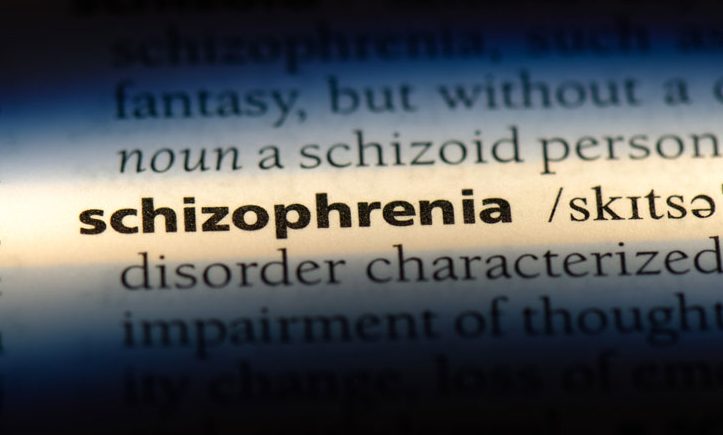Evenamide targets multiple symptoms in schizophrenia models
Posted: 15 August 2025 | Drug Target Review | No comments yet
New preclinical research suggests that evenamide – a glutamate modulator – targets hippocampal hyperexcitability, potentially addressing positive, negative and cognitive symptoms of schizophrenia.


Newron Pharmaceuticals S.p.A, a biopharmaceutical company focused on developing new therapies for diseases of the central and peripheral nervous system, has announced the publication of new preclinical research in Neuropsychopharmacology. The study, conducted by researchers at the University of Pittsburgh, reveals a unique mechanism of evenamide as a potential treatment for schizophrenia.
Using the neurodevelopmental methylazoxymethanol acetate (MAM) animal model, the findings found that evenamide – Newron’s first-in-class glutamate modulator – could address the positive, cognitive and negative symptoms of schizophrenia – areas where current treatments often fail.
Schizophrenia: current gaps in treatment
Schizophrenia affects around 1 percent of the world’s population and is characterised by positive, negative and cognitive symptoms. While dopamine D2 antagonist-based antipsychotics primarily address positive symptoms – they do little to target the negative and cognitive domains.
Limbic hippocampal hyperexcitability is recognised as a key pathological feature of schizophrenia – making it an ideal therapeutic target. The research highlights how evenamide uniquely targets this hyperexcitability, selectively inhibiting hyperactive neurons. Time-course analysis also indicated that the effects of a single dose lasted beyond the drug’s elimination, suggesting a possible impact on neuronal plasticity.
How the study was conducted
“The study examined the effect of acute evenamide treatment on the hyperdopaminergic state, hippocampal hyperexcitability, social deficits and recognition memory in the methylazoxymethanol acetate (MAM) neurodevelopmental model,” explained Daniela L Uliana, first author of the study, from the Departments of Neuroscience, Psychiatry and Psychology of the University of Pittsburgh.
“The MAM model consists of injecting MAM during gestational day 17 into pregnant rats at a time that approximates the human second trimester; a period of vulnerability in pregnancy during which prenatal disruptions can result in increased schizophrenia incidence in adults. The MAM-treated rats show multiple anatomical, behavioural, neurochemical and physiological changes consistent with schizophrenia.”
Targeting the root of the deficit
“The study findings suggest that evenamide has high therapeutic potential for treating multiple symptom domains of schizophrenia,” said Dr Anthony A. Grace, senior study author from the University of Pittsburgh. Unlike conventional antipsychotics – which primarily block dopamine D2 receptors – evenamide directly targets hippocampal hyperexcitability – a core pathological feature of schizophrenia. By acting at the site of the deficit, the drug can downregulate the hyperdopaminergic state without causing the side effects commonly associated with D2 blockade, while also improving behavioural deficits that current treatments fail to properly address.
The study findings suggest that evenamide has high therapeutic potential for treating multiple symptom domains of schizophrenia
Grace also highlighted the potential cognitive benefits of evenamide: “The recognition memory improvement induced by evenamide in the study’s MAM model may indicate that it may also enhance cognitive function in patients with schizophrenia and ultimately lead to a better functional outcome,” he explained.
Cognitive impairments are a major limitation of existing antipsychotics, which often leave patients with ongoing difficulties in memory, learning and daily functioning. By improving recognition memory and other cognitive domains, evenamide may reduce positive symptoms such as hallucinations and delusions. It could also address the social isolation and functional restrictions that current drugs often fail to relieve.
Linking preclinical findings to clinical results
“This study provides important learnings, which explain the results of our earlier Phase II and Phase III trials in patients with chronic schizophrenia. The prolonged effect in the MAM model explains the continuing improvement in symptoms even one year after starting treatment with evenamide in TRS patients in our phase II trial,” Said Newron’s CEO, said Ravi Anand. “In the Phase III trial in patients who were not responding to their current 2nd-generation antipsychotic drugs, including clozapine, the addition of evenamide led to significant improvements on the primary efficacy measure (PANSS total) as well as a clinically and statistically significant increases in responder rates.”
These preclinical findings, alongside previous clinical trial results, suggest that evenamide has the potential to change schizophrenia treatment. By targeting hippocampal hyperexcitability and addressing the full range of schizophrenia symptoms evenamide could offer patients a more comprehensive approach than current antipsychotic options.
Related topics
Animal Models, Central Nervous System (CNS), Drug Discovery, Drug Targets, Neurosciences, Therapeutics, Translational Science
Related conditions
Schizophrenia
Related organisations
Newron Pharmaceuticals S.p.A, University of Pittsburgh








